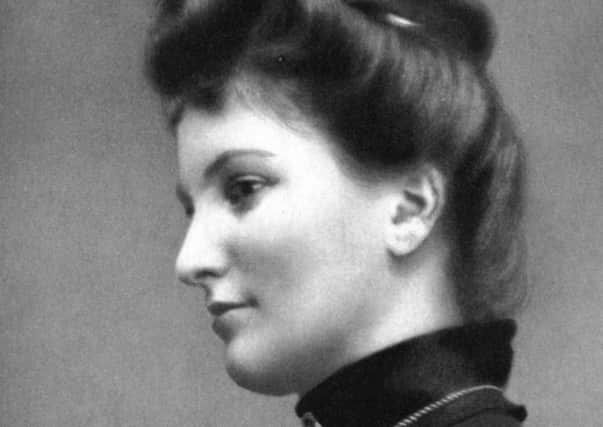Karen Cargill and the SCO to tackle the enigmatic Alma Mahler


One epithet that’s often overlooked in connection with the great woman, however, is composer. But, certainly early in life, that’s almost certainly how Alma would have described herself. And it’s Alma as composer that the SCO under conductor Mark Wigglesworth sets out to explore – alongside the Fourth Symphony by her husband Gustav – in their concerts on 30 and 31 January, when Karen Cargill performs a selection of Alma’s songs.
Giving talks before each of the concerts is Cate Haste, writer and documentary maker, and author of an acclaimed biography of Alma, Passionate Spirit, published last year. Following the lengthy period she spent in the company of Alma and her entourage, how would Haste describe her subject?
Advertisement
Hide AdAdvertisement
Hide Ad“Extremely interesting, very challenging, extremely attractive and charismatic, but also quite a difficult woman,” she says. “I came to the conclusion that she was a woman with a very modern attitude and a tremendous sense of independence, but who was actually living out of her time.” Haste homes in immediately on the central issue in Alma’s long and influential life: she was a woman living in the mid-20th century, with all the expectations, assumptions and obstacles that her gender brought her. A particular frustration came during Alma’s music-obsessed younger years, Haste feels.
“It was her life. She went to the opera three times a week, and to concerts on Sundays. She came to the conclusion that she wanted to be a composer. But women were not allowed into the music schools. There were very few women composers as role models. She was really striking out on her own.”
Nevertheless, she did receive lessons and guidance – first from Alexander Zemlinsky, teacher of Schoenberg and Webern, and later from her husband, Gustav Mahler. But not before Gustav had sent her a 20-page pre-nuptial letter setting out the terms of their relationship.
“He said that he believed there was room for only one composer in that marriage, and that was him,” Haste explains. Ten years later, when he discovered some of Alma’s songs, Gustav rushed to her tell her how wonderful they were, that he’d made a terrible mistake, and that he would arrange for them to be published and performed.
Alma was just 31 when Gustav died in 1911. And she subsequently lived a hectic personal life, going on to marry architect Walter Gropius and later writer Franz Werfel, as well as having a series of high-profile liaisons of varying degrees of intimacy with figures including the composer Alexander Zemlinsky and the artist Oskar Kokoschka. As a result, she gained a reputation as a woman who used her charismatic power over men to get what she wanted. Haste, however, looks at things differently.
“Part of falling in love with people was that she fell in love with their talent. She seemed to have an ability to make people feel that she knew what it was they wanted to achieve, and that she also know how they could achieve it.”
It’s a gripping life story, and also a cautionary tale. Apart from one short song to a poem by Werfel, all of Alma’s music comes from her early years. Why does Haste think she didn’t return to composing once she’d received Mahler’s support?
Advertisement
Hide AdAdvertisement
Hide Ad“First, she felt that supporting Mahler was actually a higher cause. But if you’re going to compose, you also need to keep in practice. Maybe in the ten years she didn’t compose, it simply shrivelled. Life, in a way, had taken over.” Now how many times have we heard that?
Karen Cargill and the SCO, conducted by Mark Wigglesworth, perform songs by Alma Mahler alongside Gustav Mahler’s Fourth Symphony at the Usher Hall, Edinburgh, on 30 January and the City Halls, Glasgow, on 31 January, www.sco.org.uk